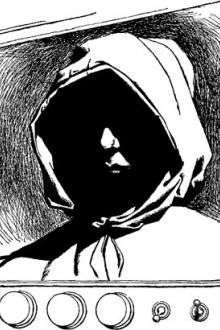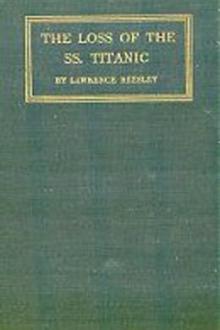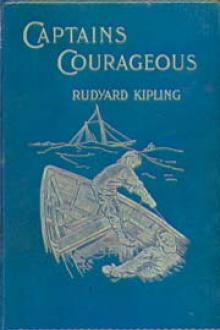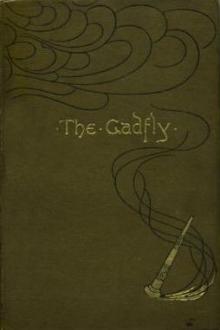Genre Adventures. Page - 4

Governor in his Ramillies wig, his glasses, and his powdering-gown still seated sedately at the lonely table with his reeking pipe and six black bottles by his side.
"I have drunk with the Governor of St. Kitt's when he was sick," said he, "and God forbid that I should ever try to keep pace with him when he is well."
The voyage of the Morning Star was a successful one, and in about three weeks she was at the mouth of the British Channel. From the first day the infirm Governor had begun to recover his strength, and before they were half-way across the Atlantic he was, save only for his eyes, as well as any man upon the ship. Those who uphold the nourishing qualities of wine might point to him in triumph, for never a night passed that he did not repeat the performance of his first one. And yet he would be out upon deck in the early morning as fresh and brisk as the best of them, peering about with his weak eyes, and asking questions about the sails and the rigging, for he was anxious to l

>"I b'lieve, Cap'n," remarked Trot, at last, "thatit's time for us to start."
The old man cast a shrewd glance at the sky, thesea and the motionless boat. Then he shook his head.
"Mebbe it's time, Trot," he answered, "but I don'tjes' like the looks o' things this afternoon."
"What's wrong?" she asked wonderingly.
"Can't say as to that. Things is too quiet to suitme, that's all. No breeze, not a ripple a-top the water,nary a gull a-flyin' anywhere, an' the end o' the hottestday o' the year. I ain't no weather-prophet, Trot, butany sailor would know the signs is ominous."
"There's nothing wrong that I can see," said Trot.
"If there was a cloud in the sky even as big as mythumb, we might worry about it; but -- look, Cap'n! --the sky is as clear as can be."
He looked again and nodded.
"P'r'aps we can make the cave, all right," he agreed,not wishing to disappoint her. "It's only a little wayout, an' we'll be on the watch; so come along, Trot."
Together they descended the win

all the extravagant luxuries of modern civilized life, on whom the discoveries of that first day of sun and wind in the Channel must have come with the greatest surprise. They had heard the ship described as a floating hotel; but as they began to explore her they must have found that she contained resources of a perfection unattained by any hotel, and luxuries of a kind unknown in palaces. The beauties of French chateaux and of English country-houses of the great period had been dexterously combined with that supreme form of comfort which the modern English and Americans have raised to the dignity of a fine art. Such a palace as a great artist, a great epicure, a great poet and the most spoilt and pampered woman in the world might have conjured up from their imagination in an idle hour was here materialized and set, not in a fixed landscape of park and woodland, but on the dustless road of the sea, with the sunshine of an English April pouring in on every side, and the fresh salt airs of the Channel filling

out the air lock or loafing on the surface. You wouldn't believe how blue the waves could be. They tell me on Rustum you can't come down off the mountain tops."
"But we'd have the whole planet to ourselves," said Teresa Zeleny.
One with a gentle scholar's face answered: "That may be precisely the trouble, my dear. Three thousand of us, counting children, totally isolated from the human mainstream. Can we hope to build a civilization? Or even maintain one?"
"Your problem, pop," said the officer beside him dryly, "is that there are no medieval manuscripts on Rustum."
[Illustration]
"I admit it," said the scholar. "I thought it more important my children grow up able to use their minds. But if it turns out they can do so on Earth--How much chance will the first generations on Rustum have to sit down and really think, anyway?"
"Would there even be a next generation on Rustum?"
"One and a quarter gravities--I can feel it now."
"Synthetics, year after year of

ttwelve paces distant; when, abruptly, the silent figure made three quickstrides to the port rail, and climbed over it into the sea.
I rushed to the side, and stared over; but nothing met my gaze, exceptthe shadow of the ship, sweeping over the moonlit sea.
How long I stared down blankly into the water, it would be impossible tosay; certainly for a good minute. I felt blank--just horribly blank. Itwas such a beastly confirmation of the unnaturalness of the thing Ihad concluded to be only a sort of brain fancy. I seemed, for thatlittle time, deprived, you know, of the power of coherent thought. Isuppose I was dazed--mentally stunned, in a way.
As I have said, a minute or so must have gone, while I had been staringinto the dark of the water under the ship's side. Then, I came suddenlyto my ordinary self. The Second Mate was singing out: "Lee fore brace."
I went to the braces, like a chap in a dream.
II
What Tammy the 'Prentice Saw
The next morning, in my w

Cawley--should have a place in the honourable list of those who did their duty faithfully to the ship and the line they served.
CHAPTER II
FROM SOUTHAMPTON TO THE NIGHT OF THE COLLISION
Soon after noon the whistles blew for friends to go ashore, the gangways were withdrawn, and the Titanic moved slowly down the dock, to the accompaniment of last messages and shouted farewells of those on the quay. There was no cheering or hooting of steamers' whistles from the fleet of ships that lined the dock, as might seem probable on the occasion of the largest vessel in the world putting to sea on her maiden voyage; the whole scene was quiet and rather ordinary, with little of the picturesque and interesting ceremonial which imagination paints as usual in such circumstances. But if this was lacking, two unexpected dramatic incidents supplied a thrill of excitement and interest to the departure from dock. The first of these occurred just bef

rike Europe. Piff! My cig's out. I can'tsmoke the truck the steward sells. Any gen'elman got a realTurkish cig on him?"
The chief engineer entered for a moment, red, smiling, and wet."Say, Mac," cried Harvey cheerfully, "how are we hitting it?"
"Vara much in the ordinary way," was the grave reply. "The youngare as polite as ever to their elders, an' their elders are e'entryin' to appreciate it."
A low chuckle came from a corner. The German opened hiscigar-case and handed a skinny black cigar to Harvey.
"Dot is der broper apparatus to smoke, my young friendt," he said."You vill dry it? Yes? Den you vill be efer so happy."
Harvey lit the unlovely thing with a flourish: he felt that he wasgetting on in grownup society.
"It would take more 'n this to keel me over," he said, ignorant thathe was lighting that terrible article, a Wheeling 'stogie'.
"Dot we shall bresently see," said the German. "Where are wenow, Mr. Mactonal'?"
"Just there or thereabouts, Mr. Schaefer," said the eng

feet, everything about him was too much chiseled, overdelicate. Sitting still, he might have been taken for a very pretty girl masquerading in male attire; but when he moved, his lithe agility suggested a tame panther without the claws.
"Is that really it? What should I do without you, Arthur? I should always be losing my things. No, I am not going to write any more now. Come out into the garden, and I will help you with your work. What is the bit you couldn't understand?"
They went out into the still, shadowy cloister garden. The seminary occupied the buildings of an old Dominican monastery, and two hundred years ago the square courtyard had been stiff and trim, and the rosemary and lavender had grown in close-cut bushes between the straight box edgings. Now the white-robed monks who had tended them were laid away and forgotten; but the scented herbs flowered still in the gracious mid-summer evening, though no man gathered their blossoms for simples any more. Tufts of wild parsley and columbin

nd of Tortuga free from the obnoxious strangers, down upon Hispaniola they came, flushed with their easy victory, and determined to root out every Frenchman, until not one single buccaneer remained. For a time they had an easy thing of it, for each French hunter roamed the woods by himself, with no better company than his half-wild dogs, so that when two or three Spaniards would meet such a one, he seldom if ever came out of the woods again, for even his resting place was lost.
But the very success of the Spaniards brought their ruin along with it, for the buccaneers began to combine together for self-protection, and out of that combination arose a strange union of lawless man with lawless man, so near, so close, that it can scarce be compared to any other than that of husband and wife. When two entered upon this comradeship, articles were drawn up and signed by both parties, a common stock was made of all their possessions, and out into the woods they went to seek their fortunes; thenceforth they were

he illumination consisted of candles set in bottles and some electric hand lamps. The centre of the cellar was occupied by two portable operating tables, rarely untenanted during the three hours I spent in this hell.
The atmosphere--for there was no ventilation--stank of sweat, blood, and chloroform.
By a powerful effort I countered my natural tendency to vomit, and looked around me. The sides of the cellar were lined with figures on stretchers. Some lay still and silent, others writhed and groaned. At intervals, one of the attendants would call the doctor's attention to one of the still forms. A hasty examination ensued, and the stretcher and its contents were removed. A few minutes later the stretcher-- empty--returned. The surgeon explained to me that there was no room for corpses in the cellar; business, he genially remarked, was too brisk at the present crucial stage of the great battle.
The first feelings of revulsion having been mastered, I determined to make the most of my opportu